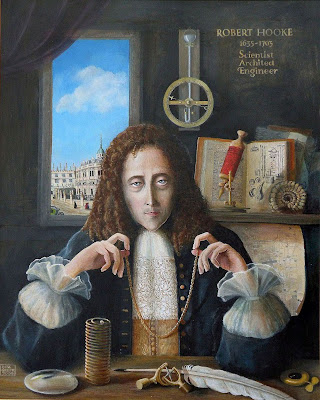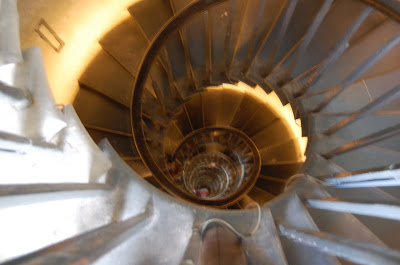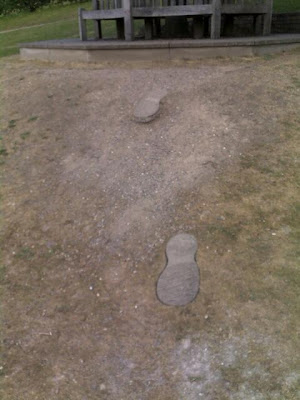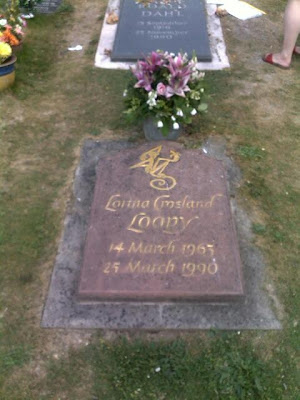26 March 2008
Big cheese Justin Richards asks if I’d write a Slitheen novel. “It'd be set in the past on earth (probably – I'm open to offers!), c50,000 words, Doctor with no companion.”
27 March
I reply with the usual serious, stoic professionalism:
“Ha ha, yes I'd love to. I'd quite like to do something based around the Acropolis in Athens - going back to Ancient Greece but also somehow incorporating the night in 1687 when the Turks blew the place up.
According to Bronowski's "The Ascent of Man", the Greeks what built the Acropolis were at about the same level of sophistication as the Mayans were when the Spanish turned up and wiped them out (they hadn't discovered the load-bearing abilities of arches, for example).
When you say no companion, can I create a one-book one? Maybe a girl from the near future (when the Elgin marbles have been given back to the Athenians)?
Also, woohoo!”
We knock some ideas back and forth, first thinking that the book might start with June visiting the British Museum, then (because that's how The Stone Rose begins) with June on a school trip.
I set to work on a first synopsis, which begins:
“June is 17 and not very confident about her forthcoming A-levels. She’s on a college trip to the Palace of Westminster (not, she has learnt that morning, the “Houses of Parliament”) when she spots the Doctor. He must be important because he doesn’t have a security pass – not even the pastel-coloured stickers that they give to the tourists – and yet the policemen with machine guns let him go where he likes.
June dares to follow him and saves his life when a monster jumps out on him. The Doctor stops the monster by talking nonsense. It feeds on nonsense and illogic – so the Palace is like a restaurant. The Doctor owes June a favour and she asks if he can help with her essay. She’s got to write about the history of democracy.”
She’s called June after my mother-in-law, who has loyally read all my stuff and who likes David Tennant.
Justin has notes on the story itself, and as I work on these over the next week two things occur about June. First, it would help for her to know a bit about Ancient Greece. If I tell the story from her perspective, she can explain the context as we go, rather than relying on lots of exposition from the Doctor. I make her a bit older and a university student, so she’s a bit more of an expert. In fact, I’ll put her on the degree course that my wife and some of our friends did. Then I can pick their brains.
Second, the Doctor’s met all his New Series companions in London so far, so let’s do something different. I could set my prologue in a museum in Manchester (there’s a cast of the Parthenon frieze above the main staircase of Manchester Art Gallery), or I could just cut to the chase…
5 April
Version 2 of the synopsis now begins:
“The Acropolis in Athens, present day. June is 20 and on holiday before her final year at university, where she’s studying Classics. She’s taking notes, ignoring the other, brasher tourists, and trying to work out how she can get this all into her dissertation.
And then she spots the TARDIS materialising down on the road to the theatre. A skinny man emerges… and is promptly set upon by some monsters. No one else notices so June hurries down to investigate.”
16 April
Justin is happy with the synopsis, and just needs a shorter, two-page version for sending to Cardiff for approval.
23 April
Cardiff approves the outline – I’ve now got until 1 October to get the thing written. And a Primeval novel to write at the same time.
I’ve been making notes and reading up on the history. Ken Dowden’s The Uses of Greek Mythology has got me thinking how the events of this story will be retold after the Doctor has gone, so I’m reading Louise Schofield’s The Myceneans looking for stuff I can provide an origin for: bull-leaping, the worship of bulls generally, Deukalion, an image on p.104 of a warrior woman (possibly Athena) in a boars’ tusk helmet and holding a baby griffin...
And I’ve an idea how to tie June into that. One bit of scribble in my notebook reads:
“June's dad is more English than the English, though he was born in Uganda + had to leave when Amin expelled the Indians. These identities are complex. And, of course, the statue of June (i.e. Athena) at the Acropolis has her as a white girl.”
19 May
I visit the set of Primeval as research for that book. Get to meet Laila Rouass who's playing new regular character Dr Sarah Page – an archaeologist working in the British Museum. It looks like the new series of Primeval will air in February 2009, a good two months before my Slitheen book comes out. So if I stick to my plans for June it'll look like I'm copying. Or, since I'm writing both books at the same time, there's more chance I'll get confused.
It’s not that I’m planning to #racefail and make her someone else. It’s more how I’ll portray her. I’m telling my story from June’s perspective anyway, so let’s see her character from her thoughts and actions and not what she looks like.
Think now I could have done that by giving her a surname that suggested her heritage, as we tried to do with Emily Chaudhry. (Though note plenty of companions don’t have surnames: Vicki, Polly, Leela, Adric, Nyssa and Ace.) I shall leave that to the fanfic.
8 June
June is visiting Athens with some other backpackers, ones who don't share her enthusiasm. Extract from my notebook:
“Unreliable history; Chinese whispers etc. & at start June cross cause has read her friend's diary, and it paints June as naïve + wowed by it all. And bored, just wants pizza and beer. And June sees the tourists, only stopping to take photos, not LOOKING, THINKING, IMAGINING”
5 July
I watch Journey's End and the Doctor’s left travelling on his own and all gloomy. It makes more sense for June to be travelling on her own, too, escaping stuff back at home.
10 September
I’m still trying to seed clues about June’s heritage into the book, but they all feel clunky and awkward. From the first draft of chapter one:
“'You're not from round here, are you?'
June's eyes narrowed. 'I'm English,' she told him.
'Oh yes,' said the Doctor. 'From somewhere round Winchester if I'm not mist judging by the accent. But you've spent some time recently in Birmingham + you like the Aussie soaps.'”
Instead, I decide I’m not going to tell you what she looks like at all. We know what sort of person she is from the things she thinks, says and does. We know what drives her – there’s plenty of stuff about what Greece means to her and why she’s out here alone. We see how her perspectives are changed by being with the Doctor. But otherwise the wheeze is she’s an everywoman, looking however the reader wants. In fact, I’m hoping she might even be the reader.
I take solace in this when the angrier end of the internet declares she’s “dull” or “generic”. (Though my favourite comment so far is from someone who’s cross I’ve got “basic fictional facts wrong”.)









































